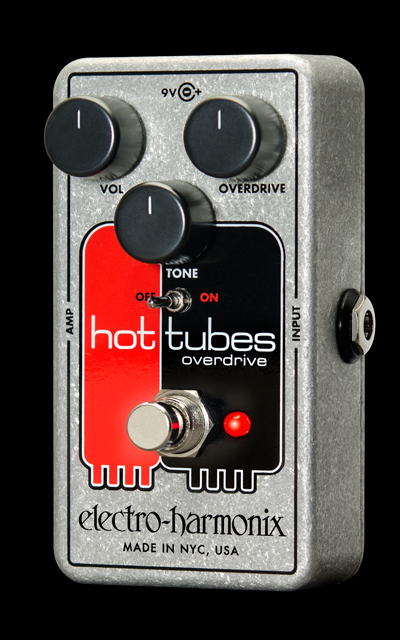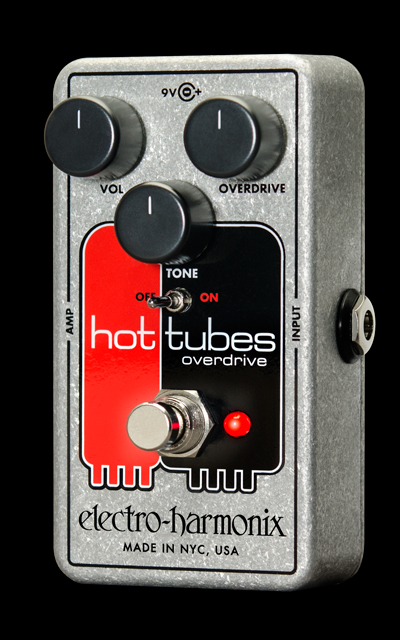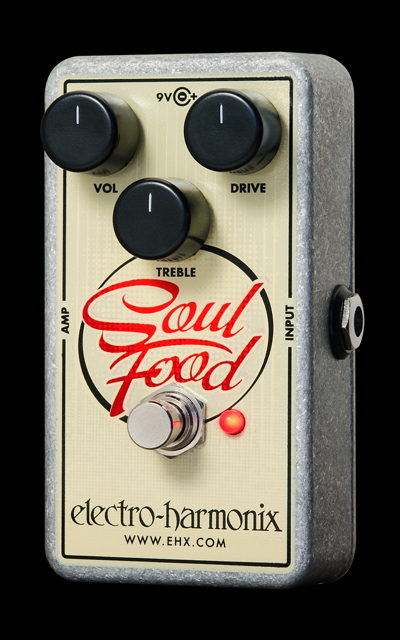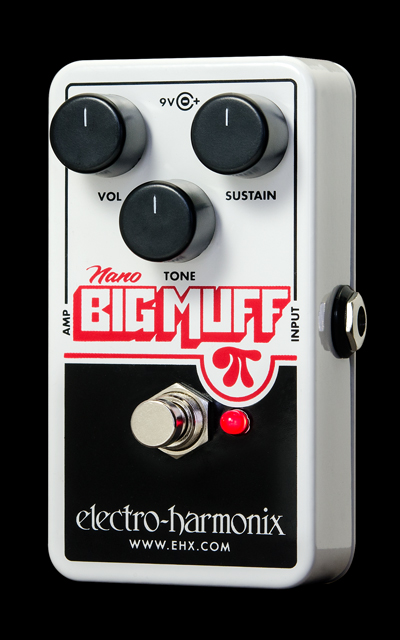Review: Electro-Harmonix Hot Tubes Overdrive, Nano Big Muff π and Soul Food Pedals
All the latest guitar news, interviews, lessons, reviews, deals and more, direct to your inbox!
You are now subscribed
Your newsletter sign-up was successful

This video is bonus content related to the April 2014 issue of Guitar World. For the full range of interviews, features, tabs and more, pick up the new issue on newsstands now or at our online store.
If someone were to open a mad-scientist hall of fame, Electro-Harmonix founder and president Mike Matthews would certainly be worthy of becoming one of its first inductees.
The stomp-box world’s equivalent of Thomas Edison, Matthews and his team of prolific inventors over the years have created hundred upon hundreds of wacky and wonderful devices that make every guitarist’s life more exciting and fulfilling.
Today, the Electro-Harmonix catalog offers a staggering number of pedals—more than 100—and the lineup keeps getting bigger and better. For this review, we looked at three of the company’s new—and incredibly affordable—distortion/overdrive pedals that recently made their debut: the Hot Tubes Overdrive, the Nano Big Muff π and the Soul Food.
Together, they deliver a rainbow of tones and textures. Individually, each will likely meet your needs no matter what type of dirt you dig. No matter what variety of distortion you need or prefer, this power trio pretty much has all of the bases covered.
Features
All three of these stomp boxes are housed in standard-size mini die-cast aluminum enclosures that take up minimal space on a pedal board. Each features three large control knobs in the typical Electro-Harmonix triangular configuration and is equipped with mono 1/4-inch input and output jacks, a bright red status LED, and a nine-volt adapter jack. (The Soul Food is the only one of the three pedals that comes with an adaptor.) The Hot Tubes and Nano Big Muff π, which are both based on classic Seventies EHX stomp boxes, feature true-bypass switching, while the entirely brand-new Soul Food pedal offers selectable true-bypass or buffered-bypass modes.
All the latest guitar news, interviews, lessons, reviews, deals and more, direct to your inbox!
In addition to sharing identical control-knob arrangements, each control on the three pedals performs similar functions. A volume control is in the upper-left corner, while the control on the upper right adjusts overdrive, sustain and drive on the Hot Tubes, Nano Big Muff and Soul Food, respectively. The center knob is a treble control on the Soul Food and a tone control on the Hot Tubes and Nano Big Muff. The Hot Tubes Overdrive also has a mini-toggle switch that completely removes the tone control from the pedal’s circuit for pure, unadulterated overdrive.
Performance
Everyone should know by now that the Big Muff name means glorious mounds of the furriest fuzz, and the Hot Tubes Overdrive makes its intentions known right there on the box. But I love that the mysterious Soul Food name isn’t quite as obvious. Like its namesake, you don’t really know what it is until you get deep into it, and fortunately this Soul Food is like a succulent slab of ribs instead of a chewy chunk of chitlins.
The Soul Food pedal is actually a clean-boost overdrive pedal. Like a pushup bra, it takes what’s already there and makes it seem bigger, rounder, and more lively and bouncy. The treble control provides subtle shifts in upper-harmonic sparkle without affecting mids or bass. If you already love your tone but wish that it was a little more assertive and attention getting, strap the Soul Food on for size.
The Hot Tubes Overdrive, on the other hand, makes an amplified guitar’s tone considerably bigger, raunchier and as impossible to ignore as Kate Upton in a string bikini. The Hot Tubes delivers a full range of textures, from crisp crunch to face-melting distortion, and it can provide a significant volume boost that lets you go to the front of the mix with the stomp of a switch.
The Nano Big Muff π is a superfreak of a fuzz box, producing outrageous sonic sizzle and end-of-the-world tones that sound as if your amp is melting like the Wicked Witch of the West. Amazingly, you can still play chords along with riffs that evoke visions of Godzilla laying ruin to Tokyo.
Cheat Sheet
List Price Hot Tubes Overdrive, $77.38; Nano Big Muff π, $93.06; Soul Food, $83.74
Manufacturer Electro-Harmonix, ehx.com
A reissue of a classic Seventies pedal, the Hot Tubes Overdrive covers the gamut from overdrive crunch to full-on raging distortion with a twist of its overdrive control.
The Nano Big Muff π provides the classic aggressive fuzz sounds of the original in its most compact configuration ever.
Soul Food serves up clean boost that preserves your guitar’s natural tone but widens its dynamic range and makes its overall sound bigger and bolder.
All three pedals are very affordable, compact and provide pro features, like a nine-volt adapter jack and true-bypass operation
The Bottom Line
Once again, the Lord of Long Island City has delivered the goods with three outrageously affordable stomp boxes that collectively cover just about every color of overdrive, distortion and fuzz a guitarist needs.



Chris is the co-author of Eruption - Conversations with Eddie Van Halen. He is a 40-year music industry veteran who started at Boardwalk Entertainment (Joan Jett, Night Ranger) and Roland US before becoming a guitar journalist in 1991. He has interviewed more than 600 artists, written more than 1,400 product reviews and contributed to Jeff Beck’s Beck 01: Hot Rods and Rock & Roll and Eric Clapton’s Six String Stories.

